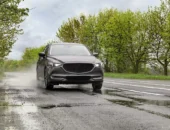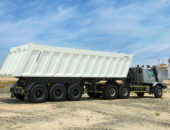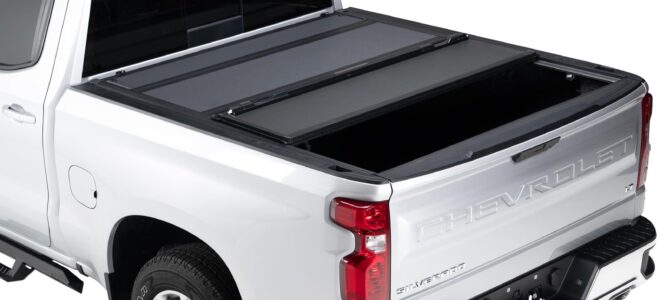
You will need a tonneau cover if you have an open-crowd car. They are sturdy if installed well. Due to their small weight, soft covers tend to flap more than hardcovers. It is preferable to replace a tonneau cover with a hard or retractable one after five to six years of use. They are pricey but prevent numerous tonneau cover issues. You must have them if you have a pe vehicle, but it starts flapping, then it becomes hard for you to get them back to their goal position.
The screws must be tightened to stop the cover from flapping. The items contained under a tonneau cover are harmed when it flaps. If you are buying an open-roof vehicle, do not forget to have a tonneau cover, as you will need them while going on trips or too many places so that the interior of the car is safe. Further, in this article, we will talk more about the tonneau cover and how you must install it so that there is no flipping problem.
Some Tips On How To Keep Your Tonneau Cover From Flapping:
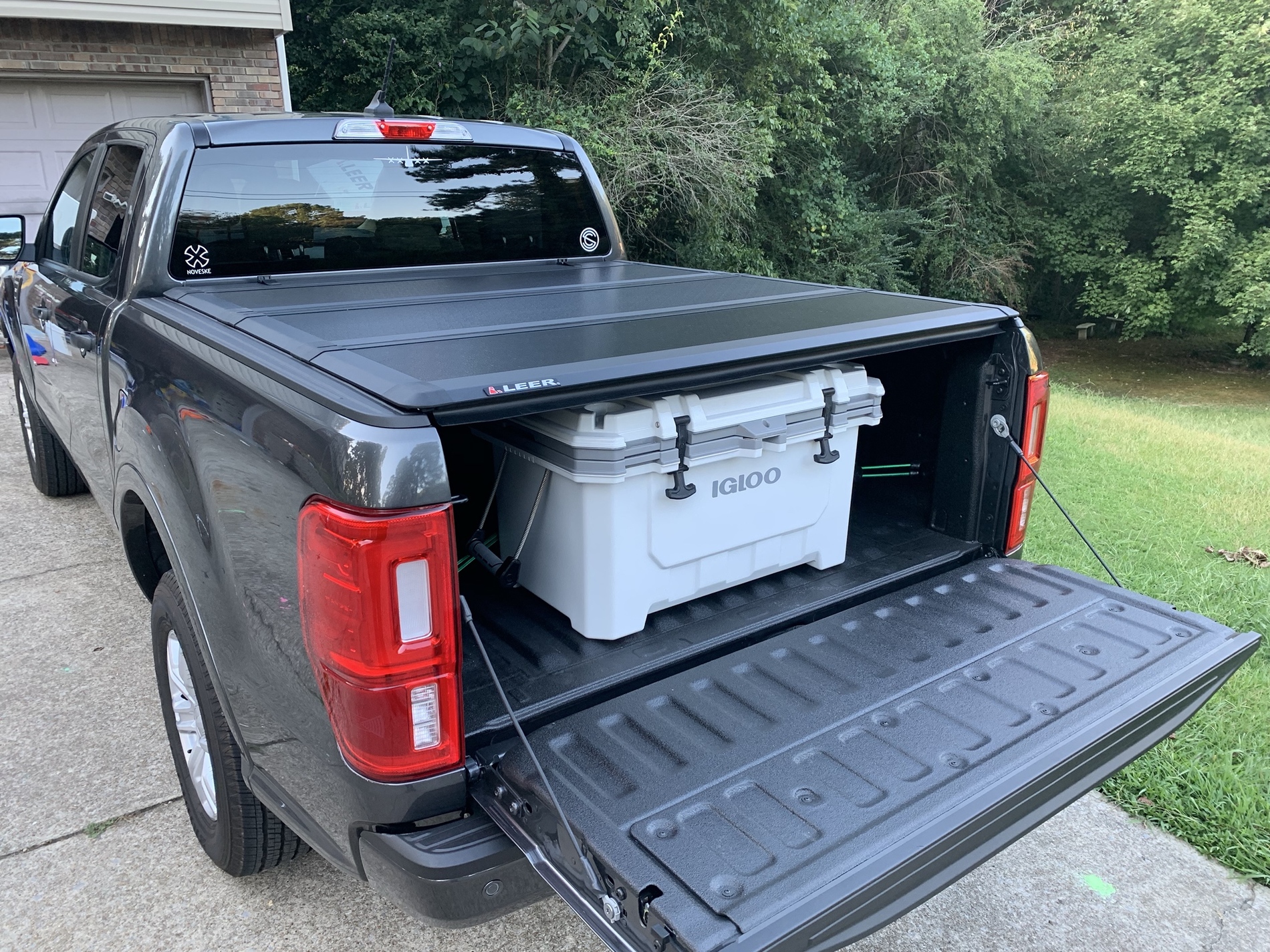
Src: ranger5g.com
Let’s check out some of the most common tips for keeping your tonneau cover away from flapping. It is essential for you to have information about it because it might help you a lot in the future. If you are searching for a good tonneau cover, you must rely on a reliable source. In this article, we will talk about all the installing and preventive tips for tableau covers.
Before Putting The Cover On, Clean The Following:
When installing the cover, make sure that you clean the surface where it is going to be placed; otherwise, it will not be installed properly. Clean the truck bed rails before mounting a tonneau cover. How unclean they are varies depending on how old your truck is. Sometimes when you purchase coverings, cleaning agents and wipes are included.
You don’t want to do anything to harm your cover; otherwise, the whole installation of your tonneau cover will not be able to work correctly. Remove any bed rails and patch any holes to avoid harming the tonneau cover. Also, you can ask the professional to clean the vehicle and place the tonneau cover accordingly.
Position The Cover:
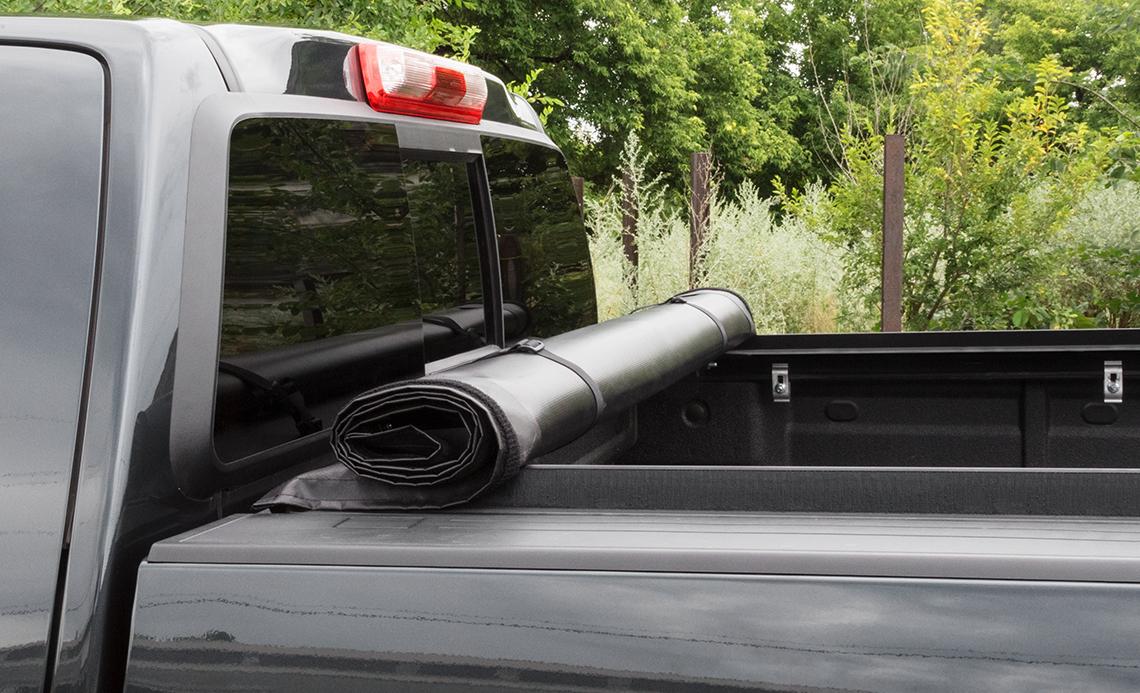
Src: agricover. com
If done correctly, the most crucial step in putting a cover will protect it from wind and flapping damage. If it needs to be correctly aligned, it will take a lot of time to fix the problem. The positioning or alignment of the cover plays a huge role in ensuring that flapping does not happen continuously. You need to see that the cover should be placed in such a manner that it does not allow clapping, no matter how intense the winds are.
Therefore, start at the corners and work your way down to align the tonneau cover properly. You need to ask the professional to align it correctly and, at the same time, watch how they are aligning it in the proper manner. The installation is successful if the cover is centered and evenly spaced at the top. Installation is the most crucial stage, and you need to be very sure about the alignment because it will be installed in a manner later it will be really hard to align it anyway. Also, tighten the cover to prevent it from flapping.
Tighten All The Clamps:
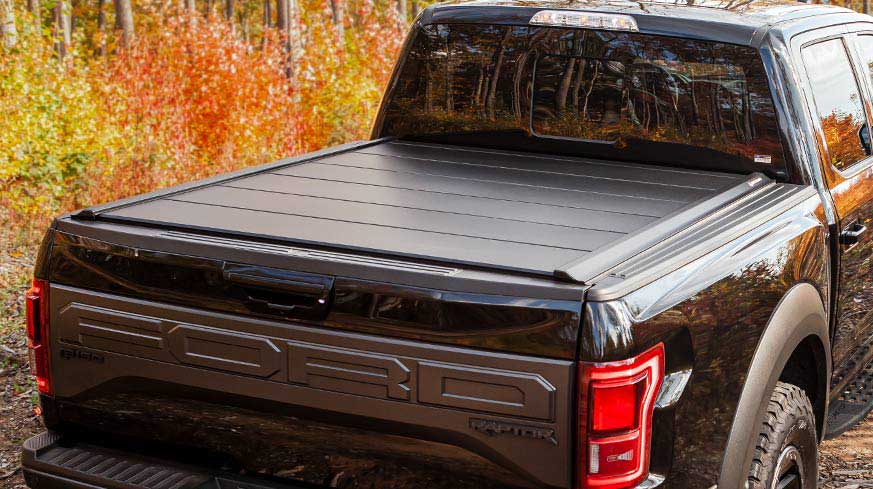
Src: peragon.com
Once the cover has been installed successfully and is properly positioned, tighten the clamps to make them permanent. Not just aligning helps in installing but tightening the clamps plays a vital role because it will not allow the flaps to become loose and fly away in the air. To tighten the clamps, you can use a socket and a wrench. It will make your work easier. But be careful not to overtighten the clamps because this can harm them and make them less effective if they break. That might also harm their ability and make it hard for them to use it properly.
Verify that everything is in the proper position before tightening the clamps. Even if you are hiring a professional for all settings, you need to ensure that everything they have done with the cover is right in place. Every part of it is working correctly, gradually stopping the cover from flapping.
Climatic Seals:
Now that the tonneau cover has been effectively installed at the truck bed, it is anticipated that it will prevent the tonneau cover from flapping. Still, you can only ensure that if there I’ll be any extreme climatic conditions, then what is going to happen? Take a few more actions that are not necessary but will increase the longevity of your vehicle cover. If you are spending your money in a vehicle accident, it is your job to take every measure to ensure that you don’t lack anything.
You can utilize the tubes and gutters included in the tonneau cover’s box to let water drain from the tracks. To maintain their function and accuracy of them, the water must be removed. You can apply all these measures to ensure that you are also prepared for extreme climatic or weather conditions.
Install Bungee Cords:
Installing bungee cords around your roof rack frame or frame rails rather than tying them below them will assist you to use the remaining ones during windy days, which is another approach to help prevent the flap-in-the-wind effect.
If you are also taking your vehicle to higher altitudes or places where you feel there are chances that the wind might be the issue that will give rise to flipping propel, you can try installing the bungee cord because that might help you a lot in the future.
Bottom Line
You must know that these tips are some of the general ones, and they work according to the specific situation. If you still feel that you need professional guidance, you must reach out to the professional who will help you throughout the process. Refer to this article during installation and ensure that the cover does not flap.

